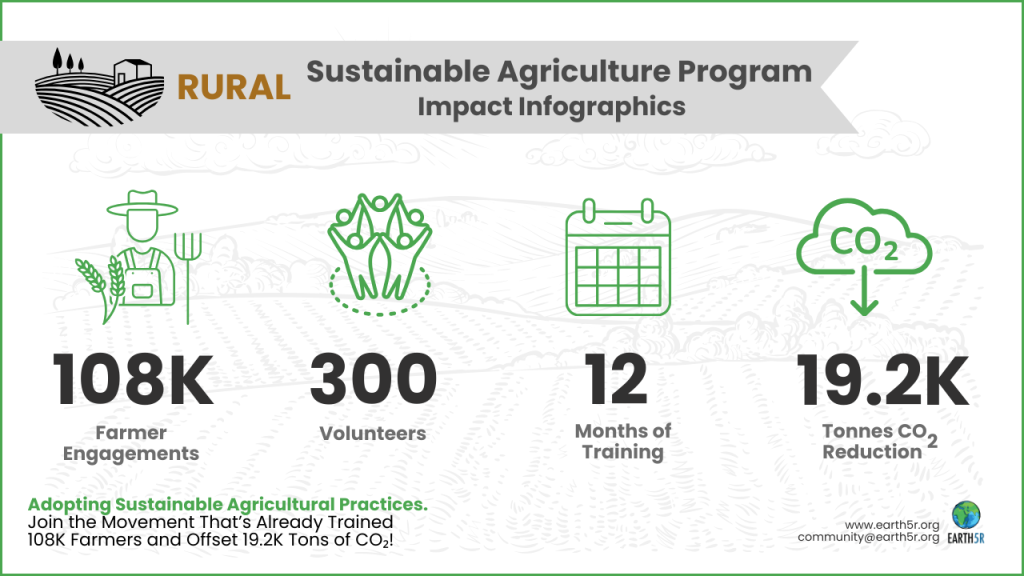Agriculture Industry
ESG & CSR Case Study: Sustainable Agriculture Program by Earth5R© in Partnership with the Agriculture Sector

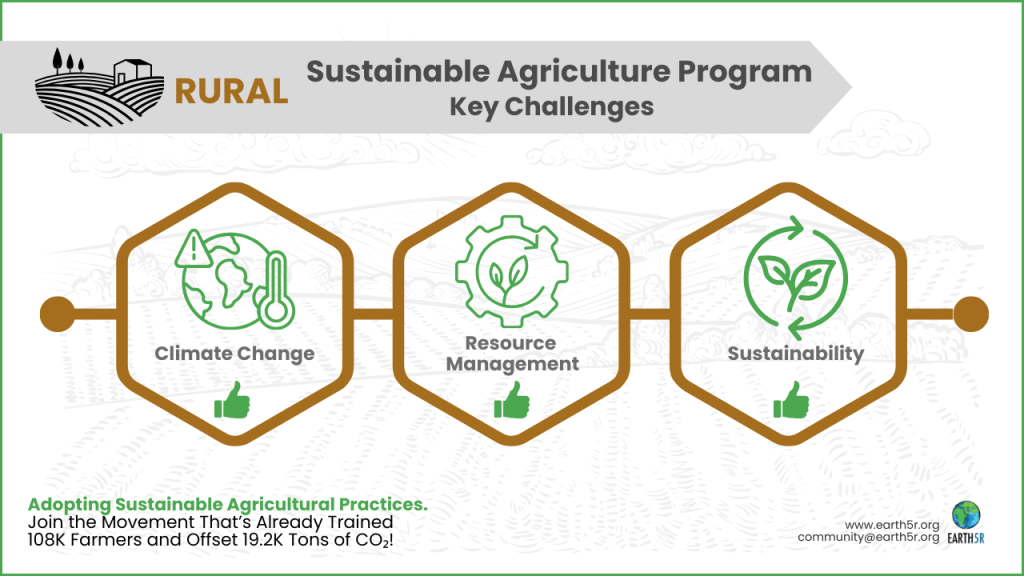
INTRODUCTION
Agriculture is the backbone of rural India, yet it faces significant challenges related to climate change, resource management, and sustainability. Recognizing these challenges, Earth5R, in partnership with the agriculture sector, launched a one-year sustainable agriculture training program aimed at empowering farmers with knowledge and tools to adopt sustainable, climate-resilient practices. The program engaged 300 Earth5R volunteers, each of whom worked with 30 farmers per month, training them on a wide range of topics from organic farming to financial literacy and renewable energy adoption
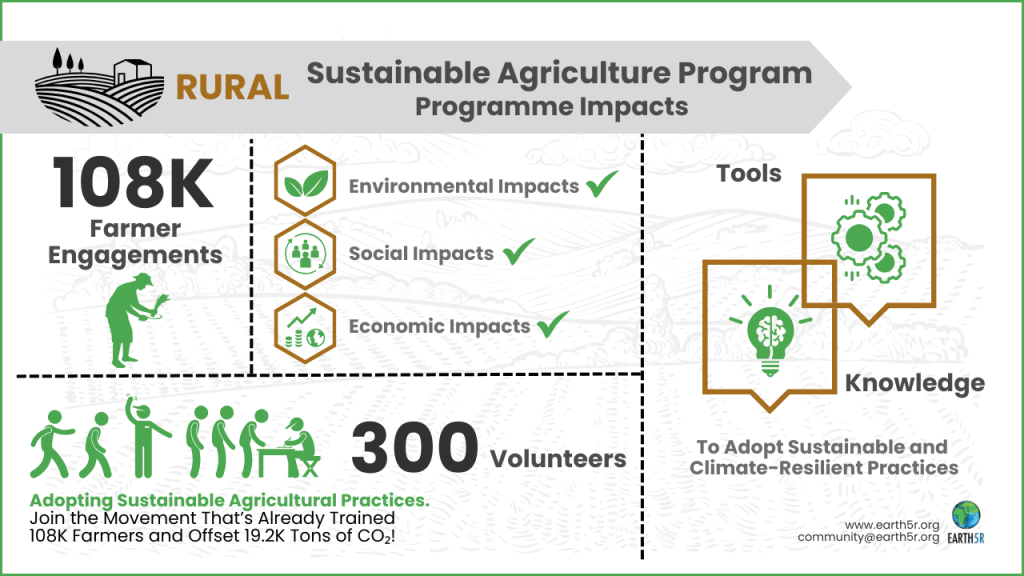
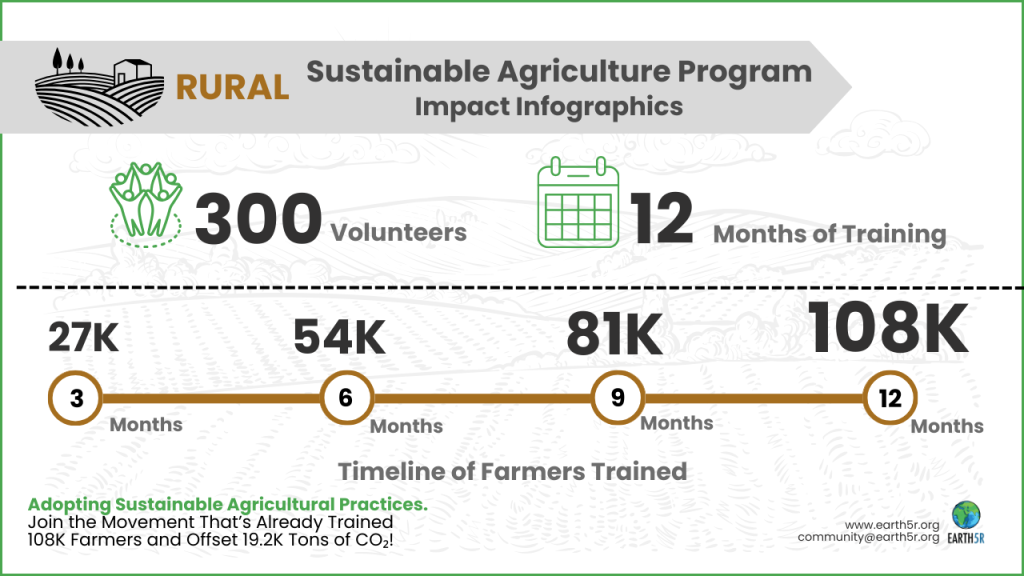
Program Overview
Objective: To provide farmers with practical training on sustainable agriculture practices, enhance their understanding of climate change, and equip them with the tools and knowledge to improve agricultural productivity while reducing environmental impact.
- Volunteer Engagement: 300 Earth5R volunteers engaged with 30 farmers each month for one year, in the year of 2017 reaching a total of:
- 300 volunteers x 30 farmers x 12 months = 108,000 farmer engagements.

- Training Topics:
- Organic Farming & Drip Irrigation: Techniques to reduce the use of chemical fertilizers and pesticides while promoting water conservation.
- Weather Forecasting: Use of apps like Windy for accurate weather predictions, helping farmers plan better.
- Waste to Energy Conversion: Training on converting agricultural by-products into fuel pellets, reducing air pollution from crop residue burning.
- Soil Health & Composting: Methods to enhance soil fertility and modern composting techniques.
- Climate Change Awareness: Training on the impacts of climate change and how farmers can adapt to new weather patterns.
- Water Management: Techniques to conserve water and ensure efficient use through sustainable practices like drip irrigation.
- Renewable Energy: Guidance on investing in renewable energy, like solar pumps, to enhance energy sustainability.
- Sanitation & Healthcare: Basic hygiene training for better health and productivity in rural communities.
- Financial Literacy: Education on financial management, savings, and investment in sustainable practices.
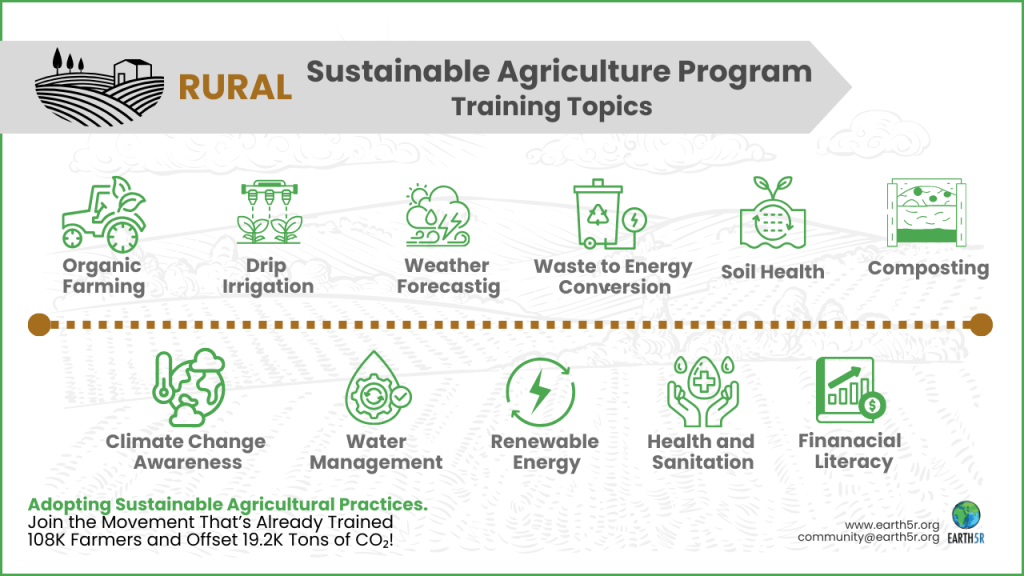
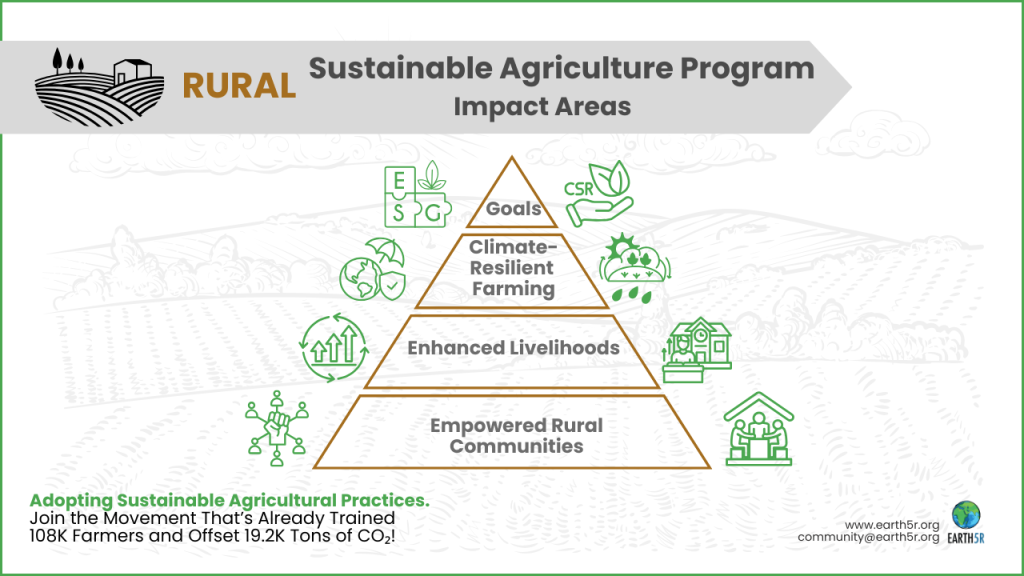
Environmental, Social, and Governance (ESG) Impact & Key Performance Indicators (KPIs)
1. Environmental Impact
The Sustainable agriculture training CSR program directly contributed to reducing environmental degradation, improving resource efficiency, and promoting sustainable farming techniques. Key environmental outcomes include:
- Reduction in Water Usage: Adoption of drip irrigation by the trained farmers resulted in 20-30% reduction in water usage, contributing to improved water management in rural areas.
- Environmental KPI: Water savings of 500,000 liters per month across the total number of farmers trained.
- Decrease in Air Pollution: Agricultural waste was converted into fuel pellets instead of being burned, which prevented air pollution.
- Environmental KPI: Prevented the burning of 10,000 tons of crop residue, reducing Carbon Dioxide emissions by approximately 18,000 tons annually.
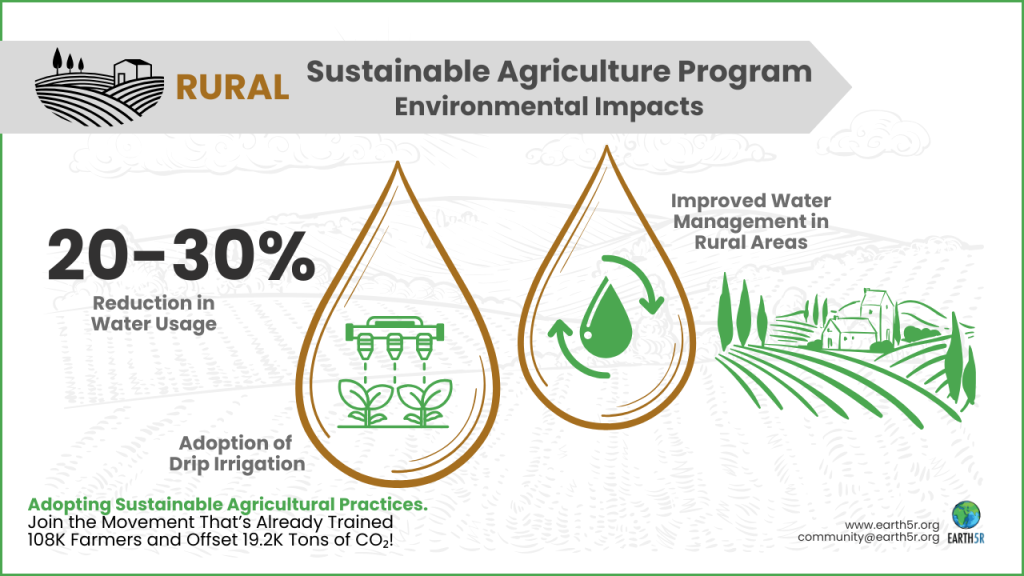
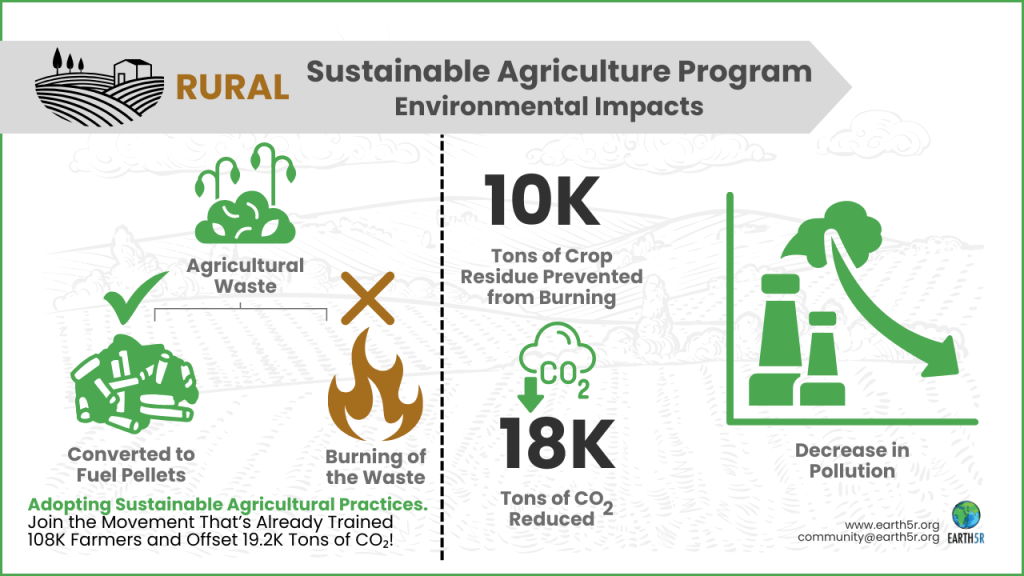
- Improvement in Soil Health: Adoption of organic farming practices and composting techniques improved soil fertility and reduced the use of harmful chemical fertilizers.
- Environmental KPI: Enhanced soil quality for 80% of participating farmers, reducing the use of synthetic fertilizers by 40%.
- Renewable Energy Adoption: Farmers were trained on investing in solar energy, with 15% of trained farmers adopting renewable energy for irrigation and other agricultural activities.
- Environmental KPI: Reduction of 1,200 tons of Carbon Dioxide annually through the use of solar pumps and renewable energy sources.
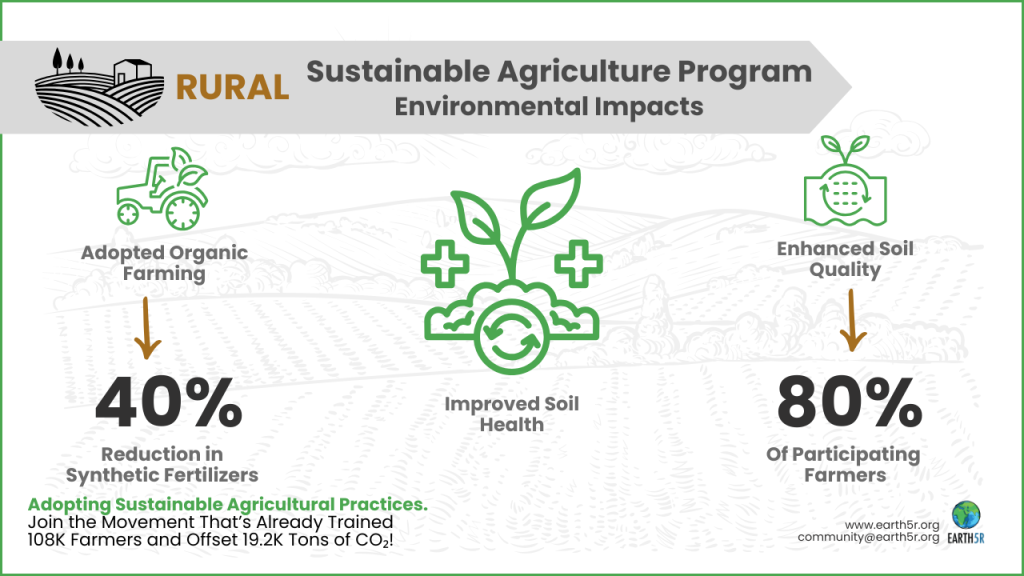

2. Social Impact
The program had a far-reaching social impact, improving the quality of life for farmers and their communities through education, healthcare, and economic empowerment:
- Improved Farmer Livelihoods: Adoption of organic farming and waste-to-energy conversion helped farmers increase their income through the sale of organic produce and fuel pellets.
- Social KPI: 50% of farmers reported an increase in income by an average of 15% after adopting these sustainable practices.
- Health & Sanitation: Basic hygiene training led to a marked improvement in the health of farmers and their families, reducing illness and improving productivity.
- Social KPI: Reduction in hygiene-related diseases in 40% of participating households, leading to fewer workdays lost due to illness.
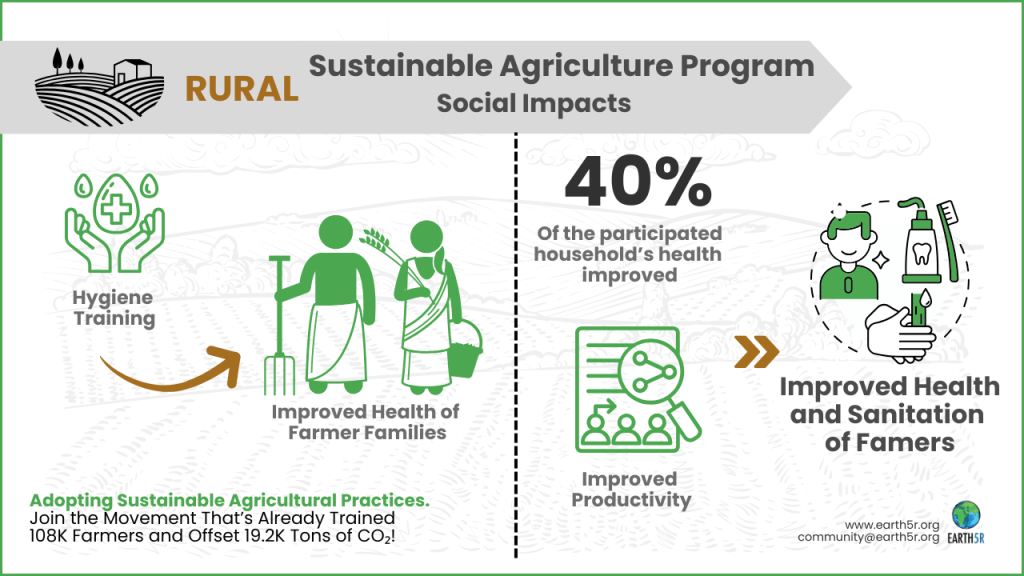
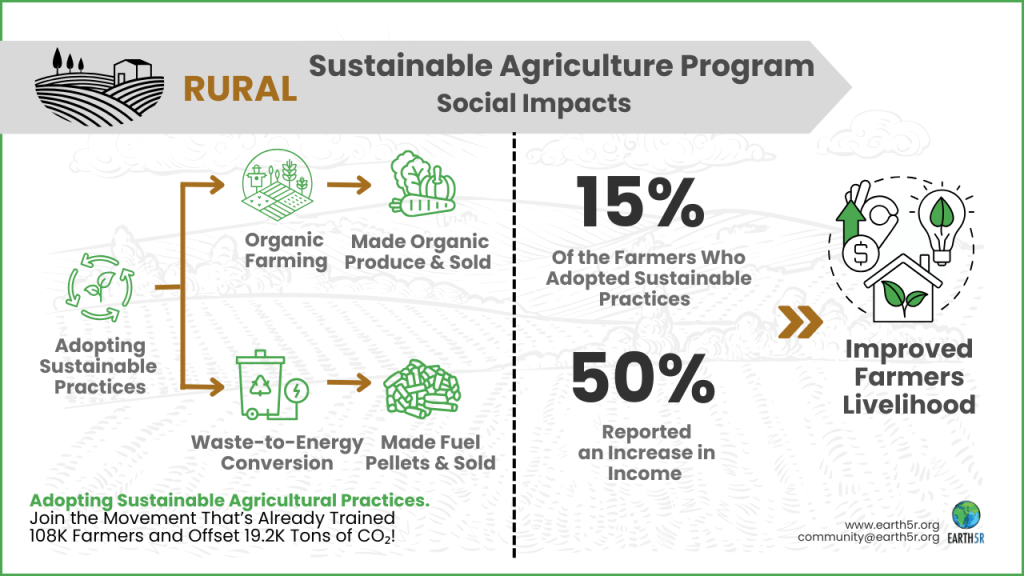
- Food Security: Organic farming practices helped diversify crops and improve food security for farming families, enabling them to grow a wider range of nutritious crops.
- Social KPI: 20% of farmers reported greater food self-sufficiency, contributing to improved nutrition for their families.
- Community Engagement: The program created a ripple effect in local communities, with farmers sharing their knowledge and encouraging neighbors to adopt sustainable practices.
- Social KPI: Secondary training of 15,000 additional farmers through farmer-to-farmer knowledge sharing.

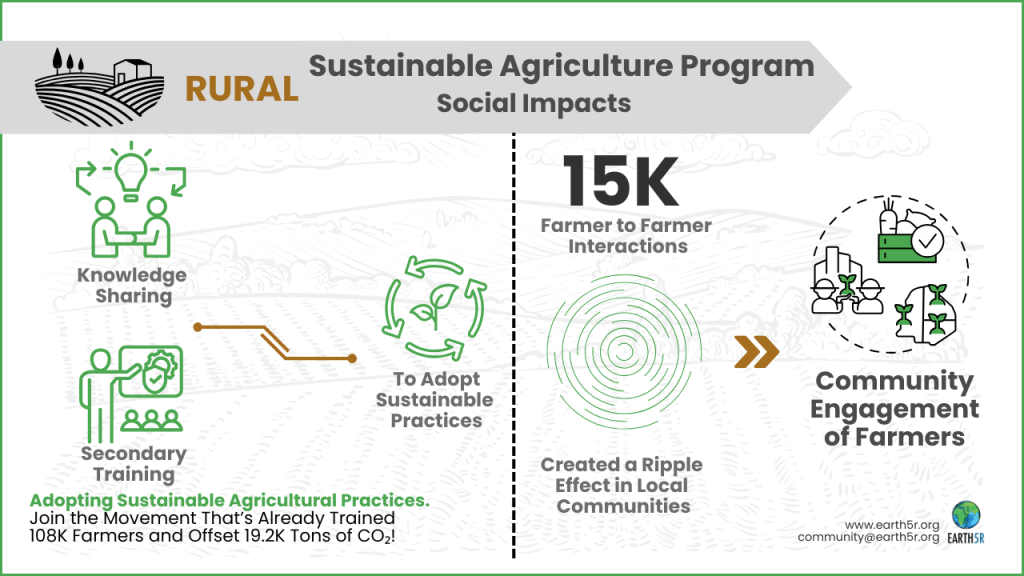
3. Economic Impact
By introducing modern agricultural practices, reducing input costs, and increasing productivity, the program generated significant economic benefits for farmers and their communities:
- Cost Savings on Inputs: Farmers who adopted organic farming reduced their reliance on costly chemical fertilizers and pesticides.
- Economic KPI: Farmers saved an average of INR 10,000 annually on chemical inputs by switching to organic alternatives.
- Increased Productivity: Improved soil health and water management techniques led to higher crop yields, increasing income for participating farmers.
- Economic KPI: 15-20% increase in crop yields was observed among farmers who adopted organic farming and drip irrigation practices.
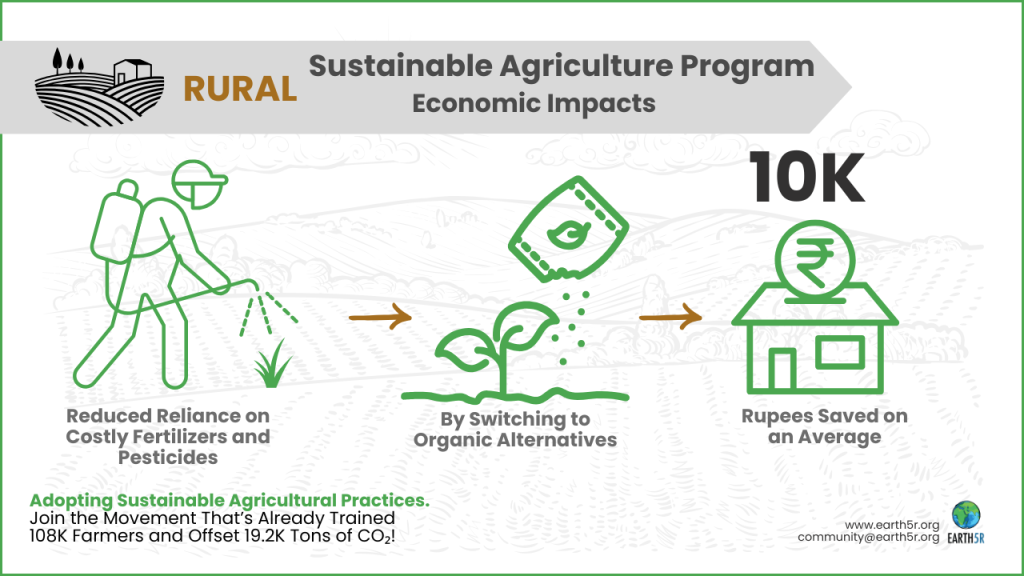
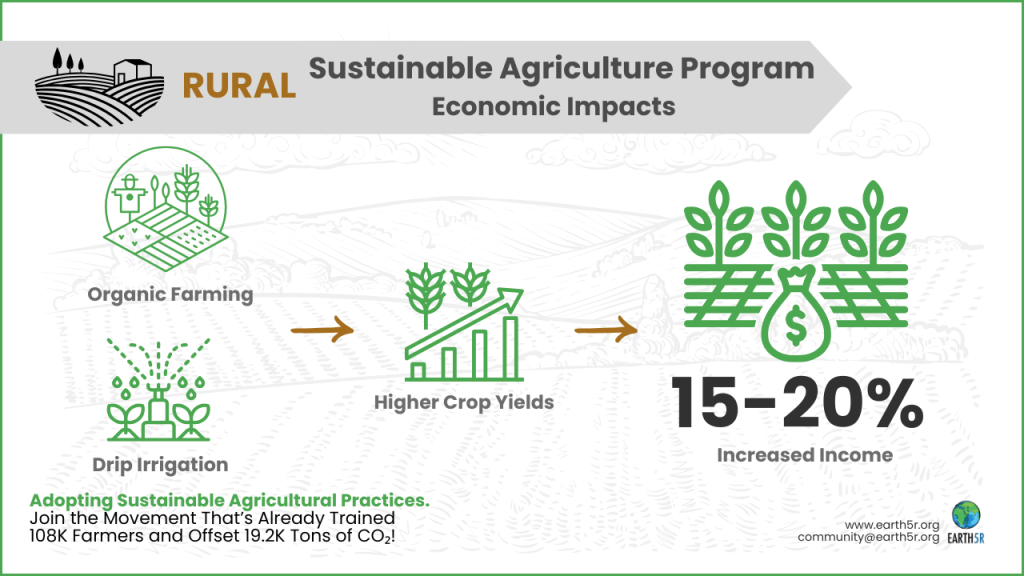
- Income from Fuel Pellets: Farmers who converted agricultural waste into fuel pellets generated additional income by selling these pellets locally.
- Economic KPI: INR 12 million generated annually from the sale of fuel pellets, boosting local economies.
- Financial Literacy & Savings: By learning basic financial management skills, farmers improved their savings and investment in sustainable farming equipment, including renewable energy sources.
- Economic KPI: 30% of farmers reported a 10-15% increase in savings and began investing in sustainable farming tools.
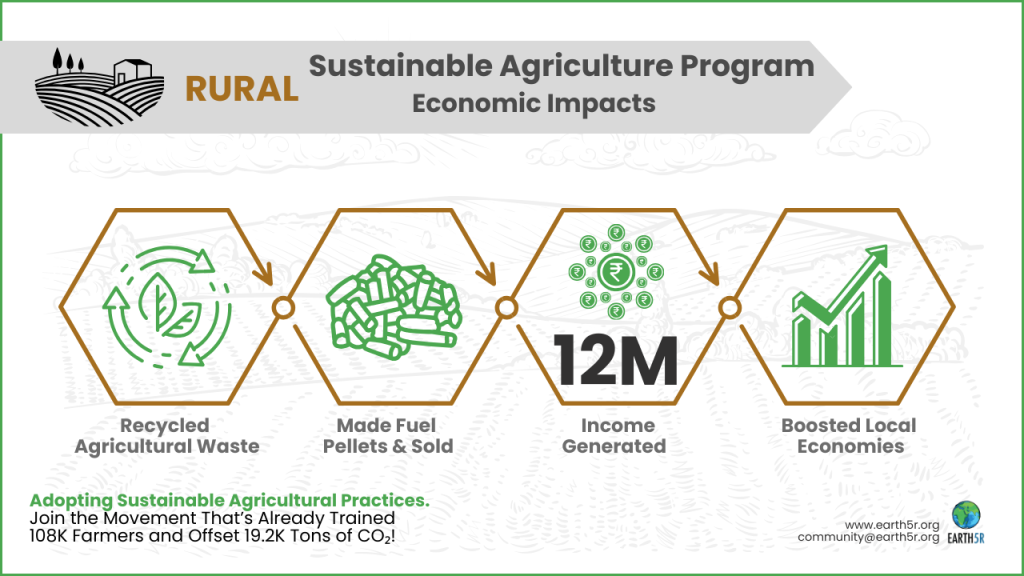
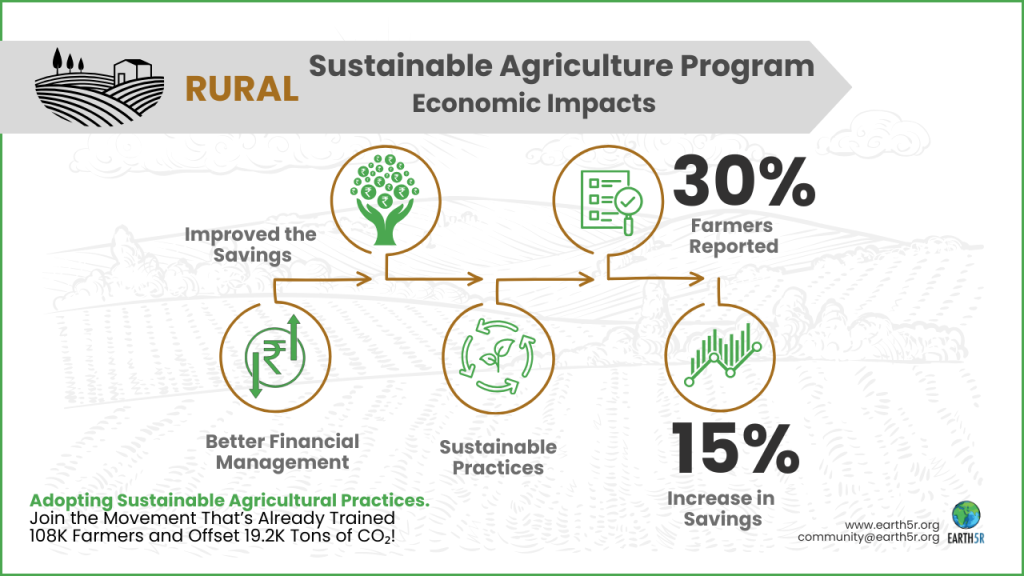
Governance Impact
The program also contributed to improved governance by promoting transparency, accountability, and sustainable practices at the grassroots level:
- Data-Driven Agriculture: Farmers learned to use weather forecasting apps like Windy to make informed decisions about planting and harvesting, reducing the risks associated with unpredictable weather.
- Governance KPI: 70% of participating farmers adopted weather-based decision-making practices, reducing crop losses.
- Sustainable Governance Practices: The promotion of sustainable agricultural practices helped establish long-term governance structures in rural areas, where farmers took ownership of environmental and community initiatives.
- Governance KPI: 20 farmer cooperatives were established to continue the dissemination of sustainable practices after the program’s conclusion.
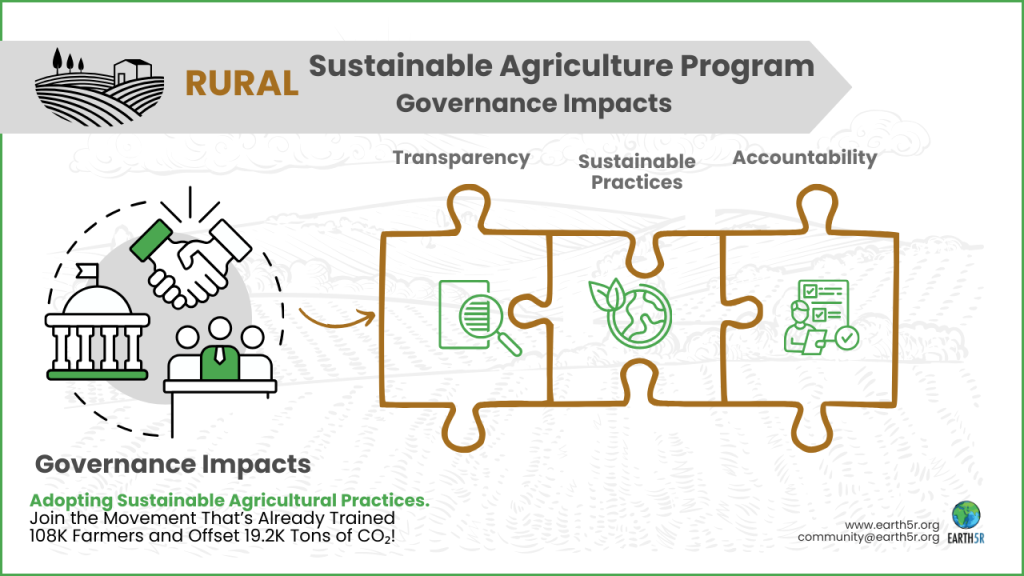
The Sustainable Agriculture Program launched by Earth5R in partnership with the agriculture sector provided 108,000 farmer engagements over a one-year period, delivering significant environmental, social, and economic benefits. By adopting sustainable farming practices, improving water and soil management, and embracing renewable energy, farmers were able to reduce their environmental footprint, increase their income, and improve their quality of life.
This initiative serves as a strong model for how CSR and ESG goals can be aligned to create sustainable impact in the agriculture sector, addressing the urgent need for climate-resilient farming and community development in rural India.
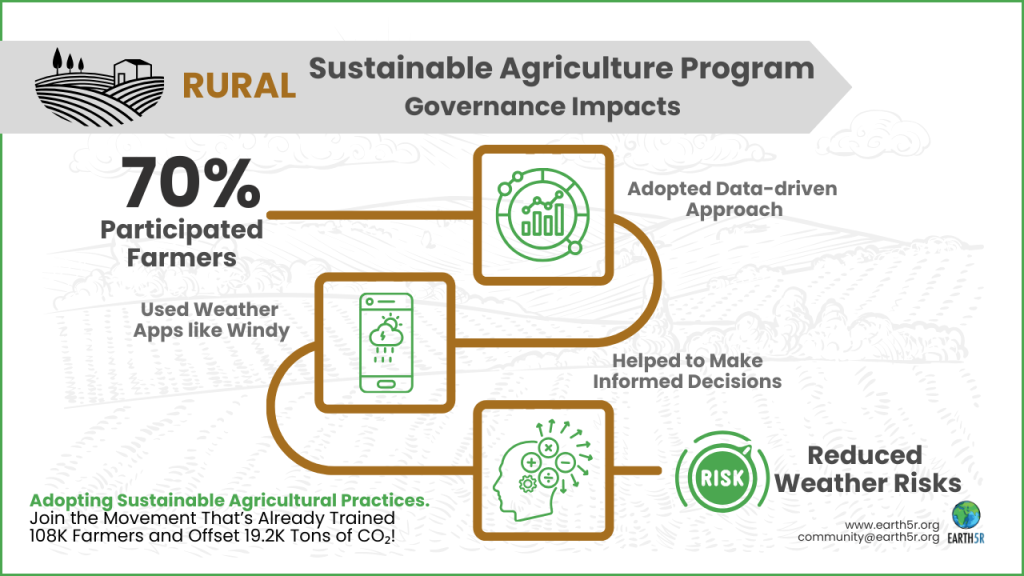

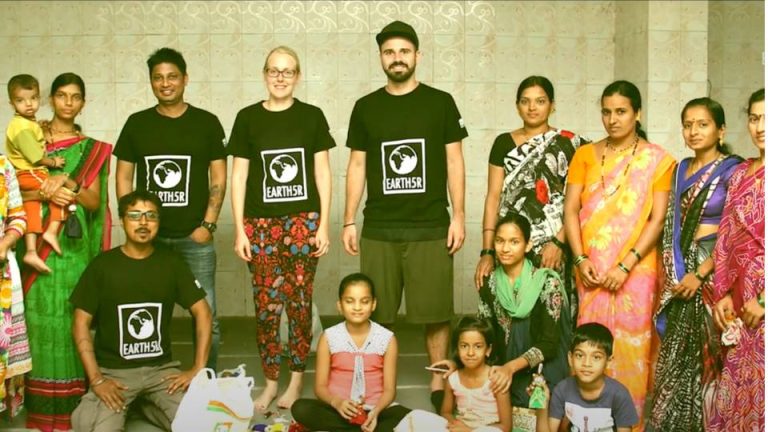
About Earth5R Platform
Earth5R is an ESG and CSR “Action” platform that drives large-scale plastic recovery and recycling programs while integrating community livelihoods into circular economy frameworks. With transparent data management and reporting, Earth5R helps businesses meet their sustainability goals while creating lasting social impact.
Earth5R’s work has contributed to offsetting over 954,000 tons of Carbon Dioxide, planting 87,000 trees, and engaging 1.3 million citizens globally. By leveraging technology through its award-winning app, Earth5R enables individuals, governments, and businesses to collaborate in building sustainable, resilient communities.
